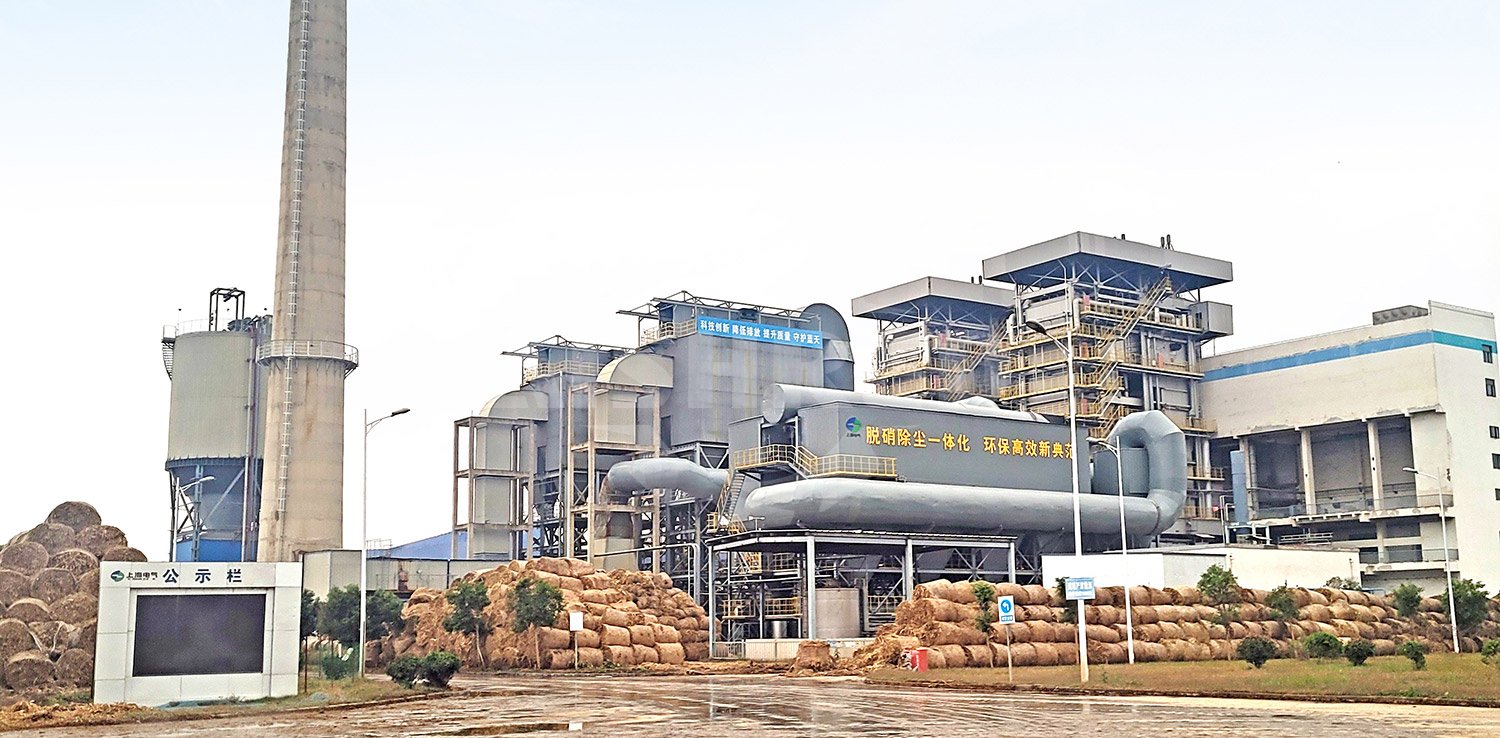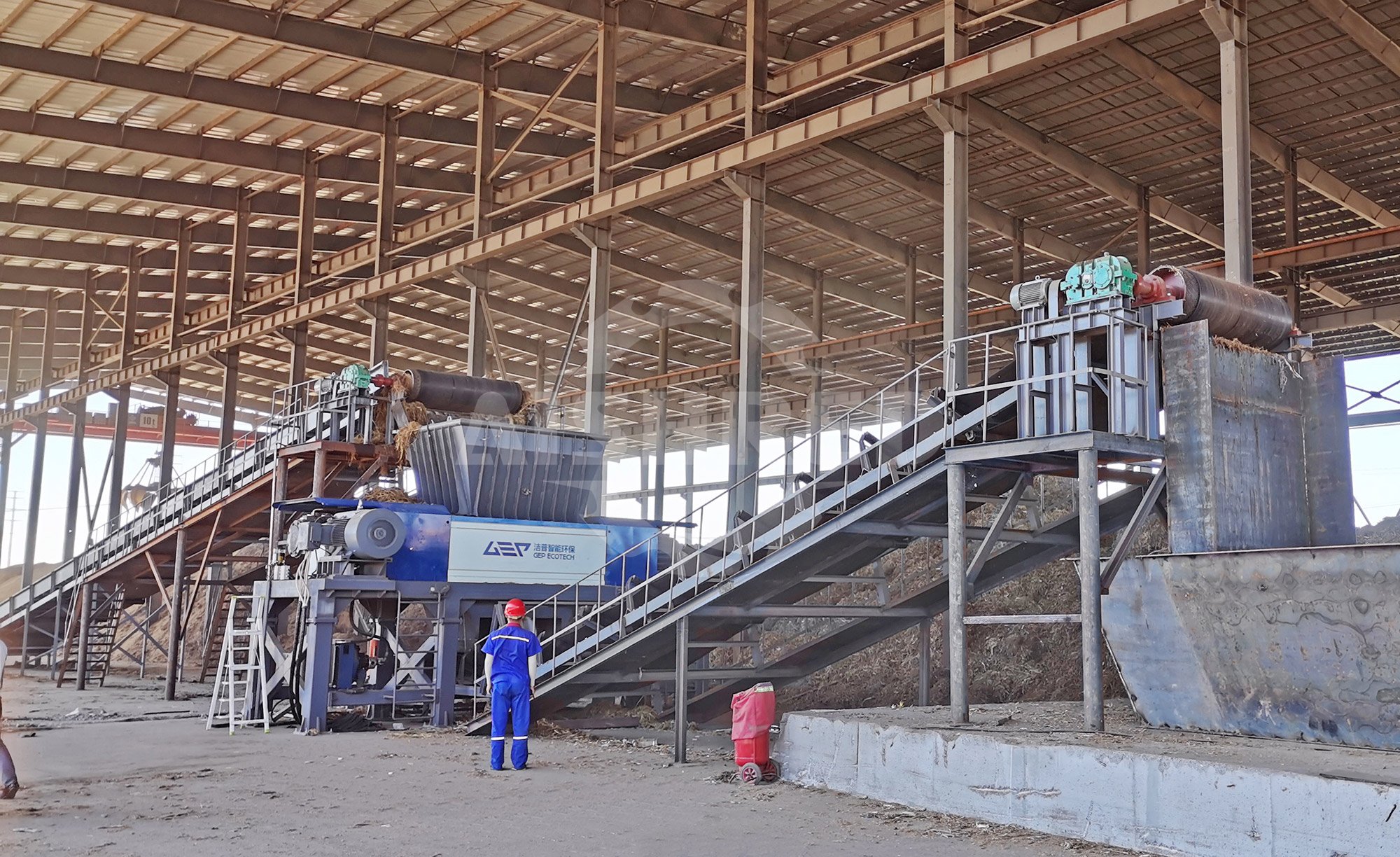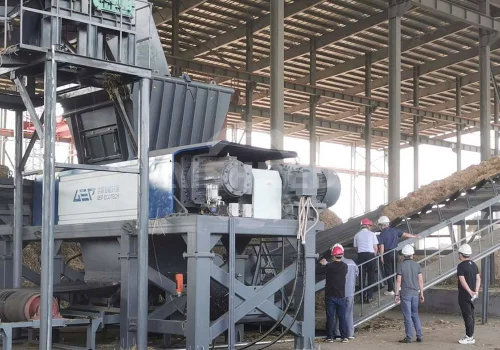As nations accelerate their transition to carbon neutrality, power plants are increasingly adopting biomass co-firing in Circulating Fluidized Bed (CFB) boilers to reduce coal dependency and decarbonize energy production. This shift not only aligns with global climate goals but also unlocks the potential of agricultural, forestry, and municipal waste as renewable fuel sources. However, the heterogeneous nature of biomass—varying in moisture, size, and calorific value—demands robust retrofitting of boiler systems and specialized preprocessing technologies. GEP ECOTECH, a pioneer in biomass and solid waste processing, delivers cutting-edge fuel preparation systems that ensure efficient, stable, and clean combustion in CFB boilers.

Biomass Co-firing in Coal-fired Power Plant
Why Co-Fire Biomass in CFB Boilers?
CFB boilers are uniquely suited for biomass co-firing due to their fuel flexibility and high combustion efficiency. By blending biomass with coal or other solid wastes, power plants can:
- Reduce GHG Emissions: Biomass is carbon-neutral, as CO₂ released during combustion is offset by carbon absorbed during plant growth.
- Utilize Waste Streams: Convert agricultural residues, urban green waste, sludge, and industrial organics into energy.
- Meet Environmental Regulations: Achieve ultra-low emissions through advanced flue gas treatment systems.
- Enhance Fuel Security: Diversify fuel sources to mitigate reliance on fossil fuels.
Yet, biomass’s irregular properties—such as high moisture, low bulk density, and fibrous structure—pose challenges for conventional coal-fired systems. Effective retrofitting and preprocessing are critical to overcoming these hurdles.
Retrofitting CFB Boilers for Biomass Co-Firing
Adapting a CFB boiler for biomass co-firing involves three key engineering upgrades:
- Feeding System Optimization
Biomass’s low density and poor flowability require dedicated feeding mechanisms. GEP ECOTECH’s pneumatic conveying systems (design output: 24 t/h, max distance: 80m) and screw feeders ensure continuous, clog-free fuel delivery. Modular designs allow seamless integration with existing coal feed lines. - Combustion Chamber Adjustments
Biomass alters combustion dynamics due to faster burnout rates and lower ash melting points. Retrofits include: - Air distribution tuning to maintain fluidization stability.
- Temperature control optimization (e.g., maintaining ≥920°C to suppress dioxin formation).
- Enhanced secondary air injection for complete burnout.
- Emission Control Enhancements
Biomass combustion may increase alkali metals and fine particulates. GEP ECOTECH-supported plants utilize multi-stage purification: - SNCR/SCR denitrification to reduce NOₓ.
- Semi-dry desulfurization and electrostatic precipitators for SO₂ and PM removal.
- High-efficiency bag filters to capture submicron particles and heavy metals.

Biomass Preprocessing: The Foundation of Efficient Co-Firing
Raw biomass must undergo rigorous preprocessing to meet CFB boiler specifications. GEP ECOTECH’s integrated systems ensure fuel uniformity, safety, and combustion efficiency through:
- Receiving & Storage
Bulk biomass (e.g., straw, wood chips) is unloaded into weatherproof bunkers equipped with moisture sensors and automated inventory management. - Shredding & Size Reduction
Dual-shaft shredders (e.g., GDB215 and GDB315 models) process diverse feedstocks—from fibrous crop residues to bulky furniture waste—into uniform particles (<50mm). With a crushing capacity of 24 t/h, these systems minimize feeding blockages and optimize combustion kinetics. - Magnetic Separation
RCYD-8 electromagnetic separators remove ferrous contaminants, protecting downstream equipment and ensuring fuel purity. - Drying & Densification (Optional)
High-moisture biomass (e.g., sludge, fresh agro-waste) is dried to ≤20% moisture, boosting calorific value. Pelletizers or briquetting machines compact loose biomass into dense, transportable fuel forms. - Automated Conveying
PLC-controlled systems synchronize with boiler DCS, enabling real-time adjustments to fuel feed rates based on combustion conditions.
GEP ECOTECH: Engineering Excellence in Biomass Fuel Preparation
GEP ECOTECH’s preprocessing solutions are engineered for reliability, scalability, and sustainability, supporting CFB co-firing projects worldwide.
- High-Efficiency Shredders: Dual-shaft technology handles tough, fibrous materials with minimal wear. Intelligent overload protection ensures 24/7 operation.
- Modular Design: Customizable configurations for shredding, separation, drying, and conveying, tailored to project scale (e.g., 200–400 t/day capacity).
- Emission Compliance: Integrated systems reduce dioxins to 0.00079 ngTEQ/m³ (98% below GB 18485-2014 limits) and ensure heavy metals near zero.
- Cost Savings: A 300MW plant co-firing 12,000 t/year biomass saves 85,500 tce annually, cuts CO₂ by 237,000 t, and generates ~¥3.96 million in carbon revenues.
Case Study: Fujian Huadian Yong’an Power Plant
GEP ECOTECH’s preprocessing systems enabled the successful operation of a 300MW CFB co-firing project, achieving:
- Daily Processing: 400 t municipal waste, 200 t biomass, 200 t sludge, and 50 t RDF.
- Emission Performance: All pollutants (PM, SO₂, NOₓ, HCl, dioxins) met GB 13223-2011 and GB 18485-2014 standards.
- Economic Returns: Annual net profits exceeded ¥20 million, with a payback period under 3 years.
Biomass co-firing in CFB boilers represents a pragmatic step toward decarbonizing power generation. However, its success hinges on advanced preprocessing systems that transform raw biomass into consistent, boiler-ready fuel. GEP ECOTECH’s innovative solutions—combining shredding, sorting, and smart control technologies—empower plants to achieve operational efficiency, regulatory compliance, and circular economy benefits.


